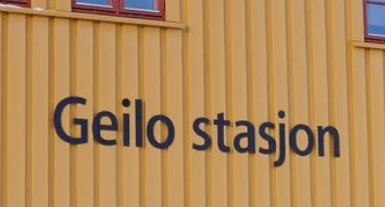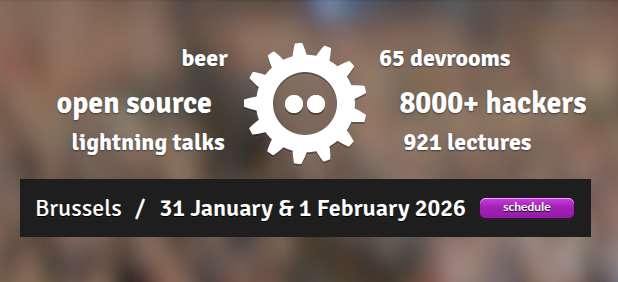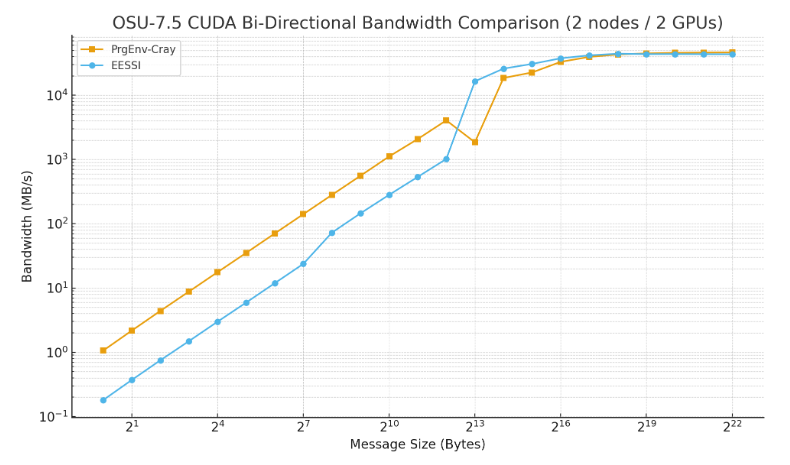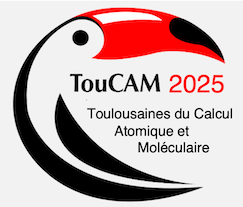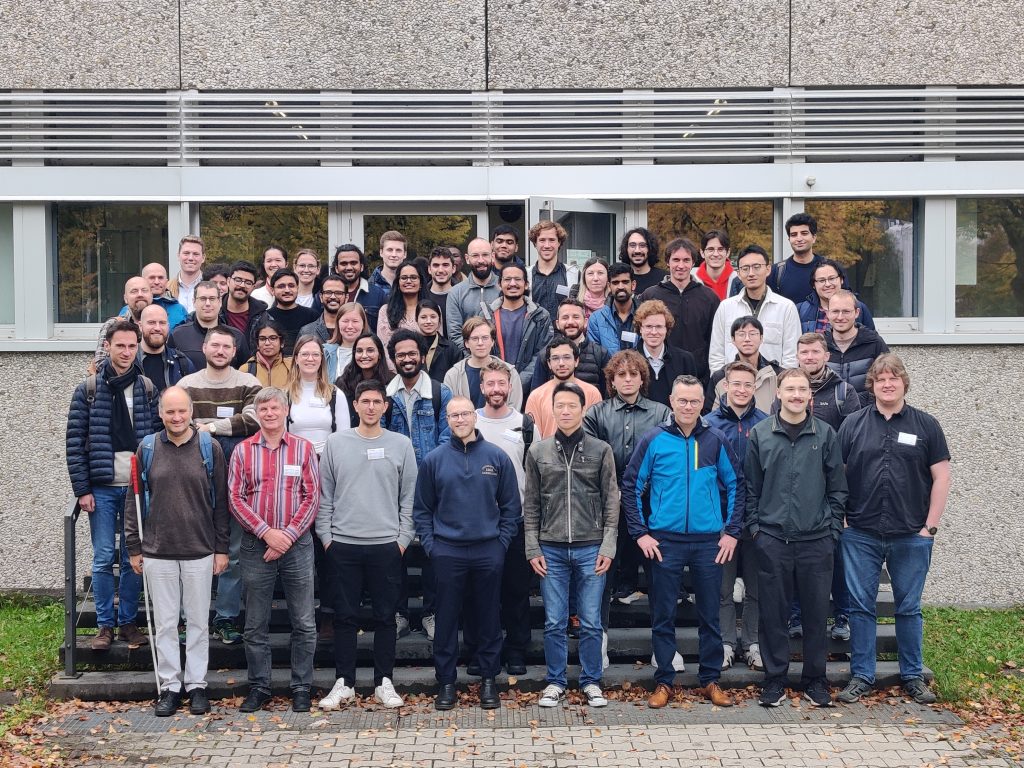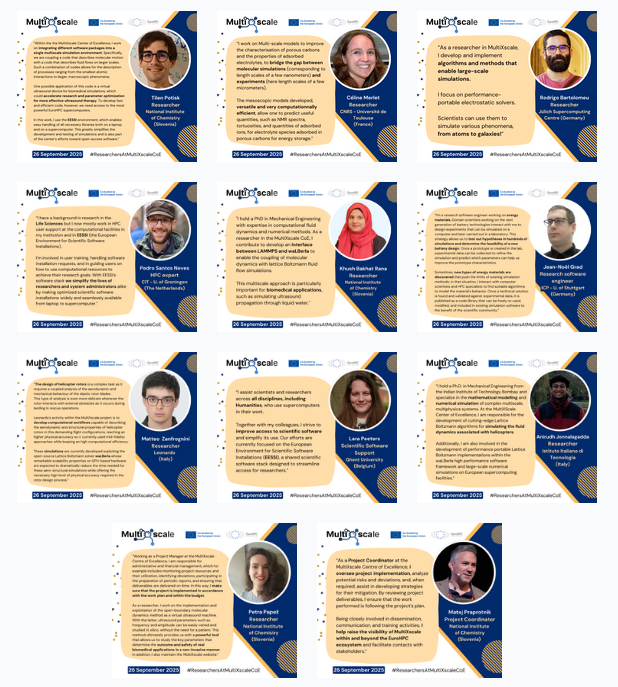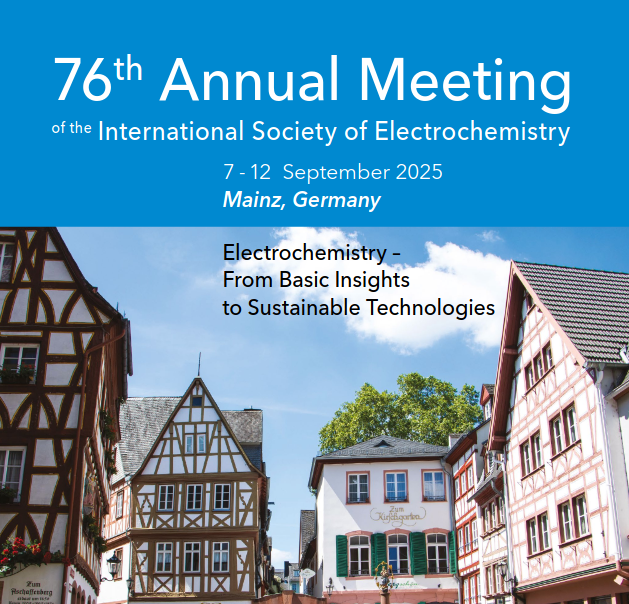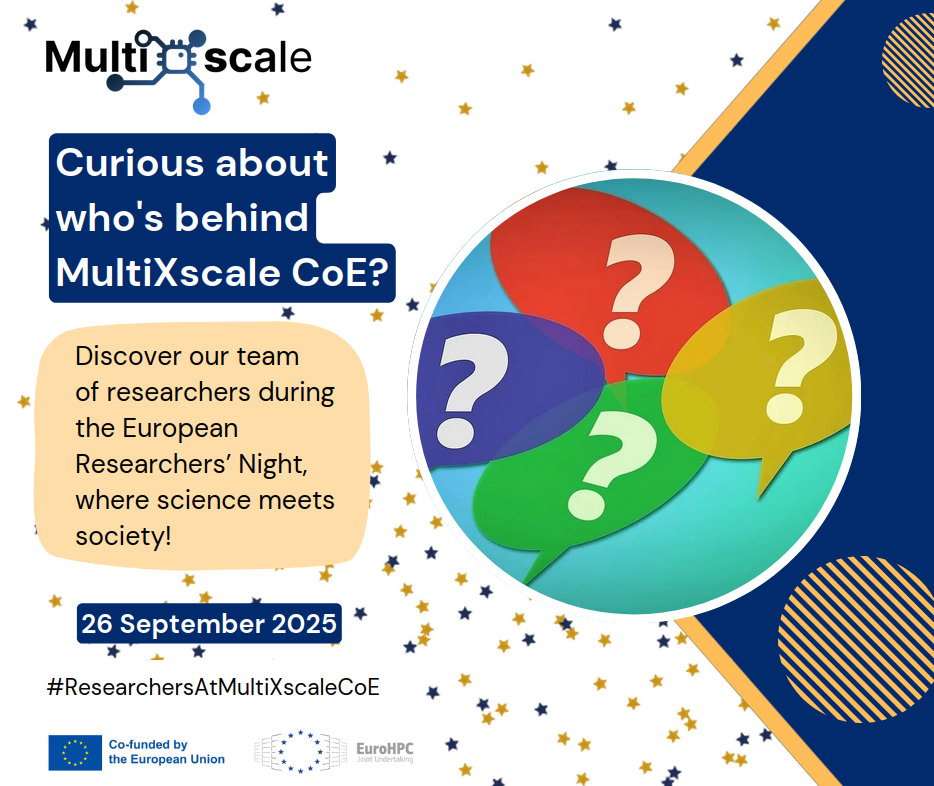MultiXscale experts will present on 1 February 2026, during FOSDEM event in Brussels (Belgium): “Keeping the P in HPC: the EESSI Way” by Kenneth Hoste, from 10:30 to 11:10 (Room: H.1301 Cornil) Abstract: In scientific computing on supercomputers, performance should be king. Today’s rapidly diversifying High-Performance Computing (HPC) landscape makes this increasingly difficult to achieve however… Modern supercomputers rely heavily on open source software, from a Linux-based operating system to scientific applications and their vast dependency stacks. A decade ago, HPC systems were relatively homogeneous: Intel CPUs, a fast interconnect like Infininand, and a shared filesystem. Today, diversity is the norm: AMD and Intel CPUs, emerging Arm-based exascale systems like JUPITER, widespread acceleration with NVIDIA and AMD GPUs, soon also RISC-V system architectures (like Tenstorrent), etc. This hardware fragmentation creates significant challenges for researchers and HPC support teams. Getting scientific software installed reliably and efficiently is more painful than ever, and that’s before even considering software performance. Containers, once heralded as the solution for mobility-of-compute, are increasingly showing their limits. An x86_64 container image is useless on a system with Arm CPUs, and will be equally useless on RISC-V in the not so distant future. What’s worse is that portable container images used today already sacrifice performance by avoiding CPU-specific instructions like AVX-512 or AVX10, potentially leaving substantial performance gains on the table. Containerization also complicates MPI-heavy workloads and introduces friction for HPC users. This talk introduces the European Environment for Scientific Software Installations (EESSI), which tackles these challenges head-on with a fundamentally different approach. EESSI is a curated, performance-optimized scientific software stack powered by open source technologies including CernVM-FS, Gentoo Prefix, EasyBuild, Lmod, Magic Castle, ReFrame, etc. We will show how EESSI enables researchers to use the same optimized software stack seamlessly across laptops, cloud VMs, supercomputers, CI pipelines, and even Raspberry Pis—without sacrificing performance or ignoring hardware differences. This unlocks powerful workflows and simplifies software management across heterogeneous environments. EESSI is already being adopted across European supercomputers and plays a central role in the upcoming EuroHPC Federation Platform. Come learn why EESSI is the right way to keep the P in HPC. More information available here “Status update on EESSI, the European Environment for Scientific Software Installations” by Helena Vela, from 15:30 to 15:55 (Room: H.1308 Rolin). Abstract: A few years ago, the European Environment for Scientific Software Installations (EESSI) was introduced at FOSDEM as a pilot project for improving software distribution and deployment everywhere, from HPC environments, to cloud environments or even a personal workstation or a Raspberry Pi . Since then, it has gained wide adoption across dozens of HPC systems in Europe, being installed natively in EuroHPC systems and becoming a component within the EuroHPC Federation Platform. This session will highlight the progress EESSI has made, including the addition of new CPU and GPU targets, with broader support for modern computing technologies and much more software, featuring 600+ unique software projects (or over 3500 if you count individual Python packages and R libraries that are included) shipped with it. EESSI’s capabilities have expanded significantly, turning it into a key service for managing and deploying software across a wide range of infrastructures. We will provide an overview of the current status of EESSI, focusing on its new capabilities, the integration with tools like Spack and Open OnDemand, as well as its growing software ecosystem. Through a live hands-on demo, we will showcase how EESSI is being used in real-world HPC environments and cloud systems, and discuss the future direction of the platform. Looking ahead, we will cover upcoming features and improvements that will continue to make EESSI a solid enabler for HPC software management in Europe and beyond. More information available here * FOSDEM is a free event for software developers to meet, share ideas and collaborate. Every year, thousands of developers of free and open source software from all over the world gather at the event in Brussels.



